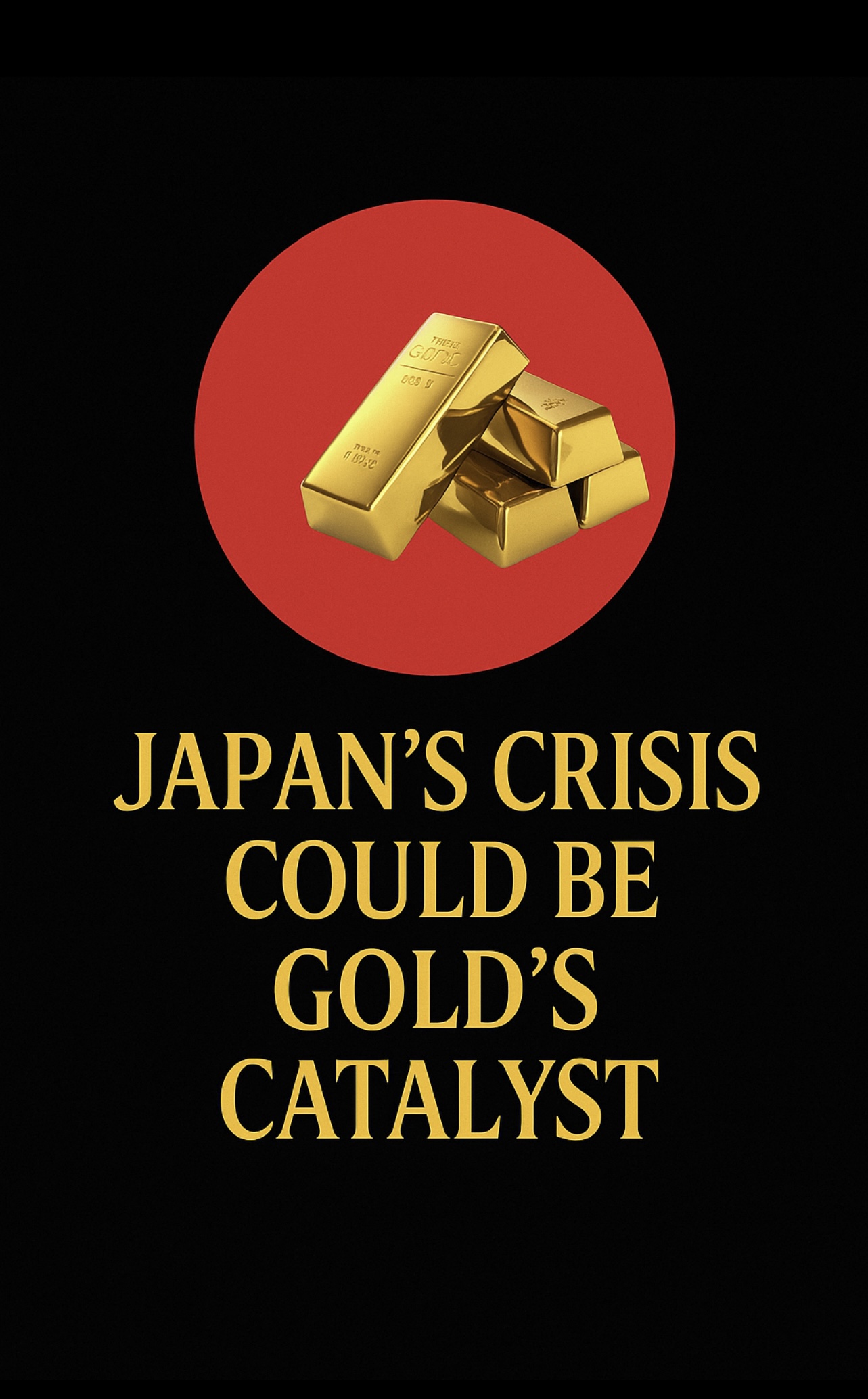Japan’s Collapse Could Trigger America’s—and Gold Knows It
Japan is unraveling financially—and the U.S. might not be far behind. At the heart of the crisis is a core dilemma: defend the bond market or defend the currency. But history, debt, and global markets suggest only one path will be chosen—and gold could already be reacting.
Japan’s central bank has been running extreme monetary policies for over 25 years: Zero Interest Rate Policy (ZIRP), massive money-printing, and relentless bond buying. Today, its debt-to-GDP ratio is over 200%, and the central bank’s balance sheet equals 90% of GDP. Now, bond yields are surging, and demand for long-term Japanese bonds is collapsing—just as Japan faces its worst bond auction since 1987.
This situation forces a brutal choice:
- Defend the bond market (by printing more money) and risk a collapsing yen.
- Defend the yen (by raising rates or selling U.S. Treasuries) and risk crashing bonds.
Here’s where the U.S. comes in: It’s playing a very similar game, just a few innings behind.
Despite promises of fiscal restraint, U.S. debt has crossed $36 trillion, with a deficit-ridden bill expected to add $3–4 trillion more. Debt-to-GDP is now over 120%. If bond markets lose confidence—as they did in Japan—U.S. yields could spike, triggering a crisis that forces the Federal Reserve to make the same choice.
Why gold?
Because defending bonds will almost certainly require massive money-printing—just like in Japan. That weakens the dollar and fuels inflation. Smart money knows this, which is why gold prices are surging. Gold is not just a hedge—it’s a signal.
In a world where currencies and bonds are unstable, gold remains one of the few truly neutral stores of value. And as both Japan and the U.S. approach their tipping points, gold could be the asset that sees it coming first.
Disclaimer: This content is for informational purposes only. It is based on publicly available information and general market commentary. It should not be considered financial advice. Always consult a licensed financial advisor before making investment decisions.

